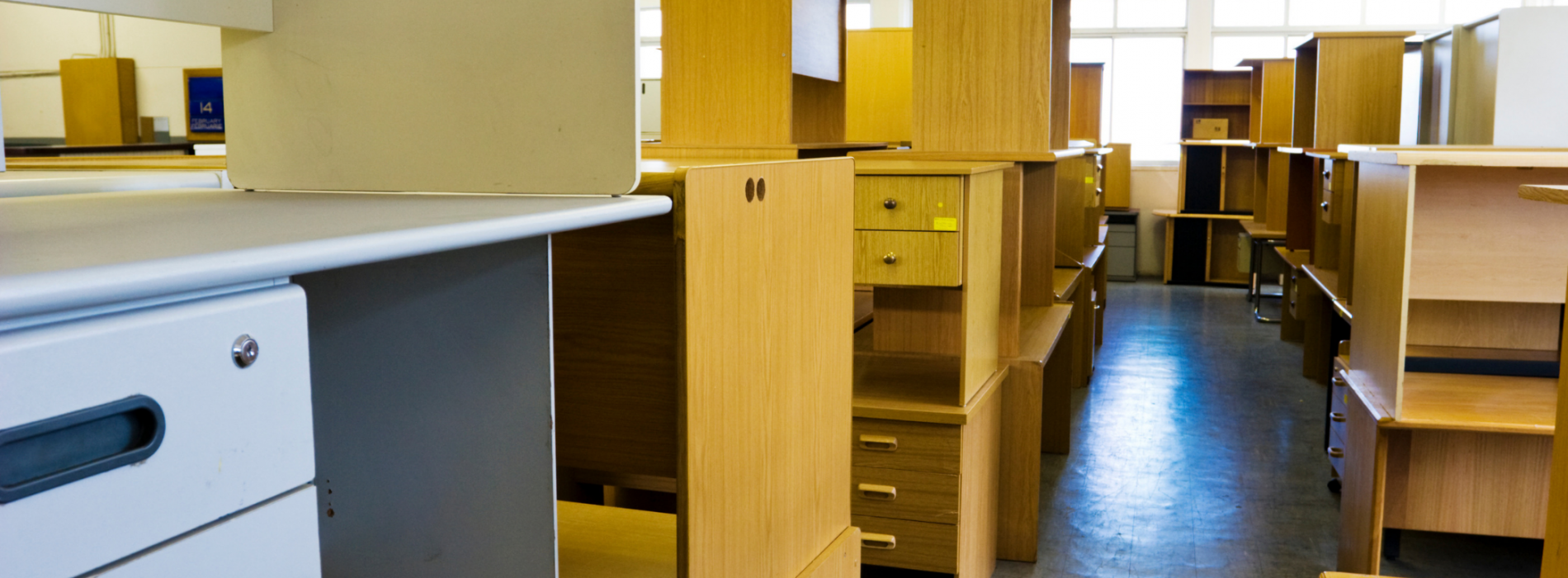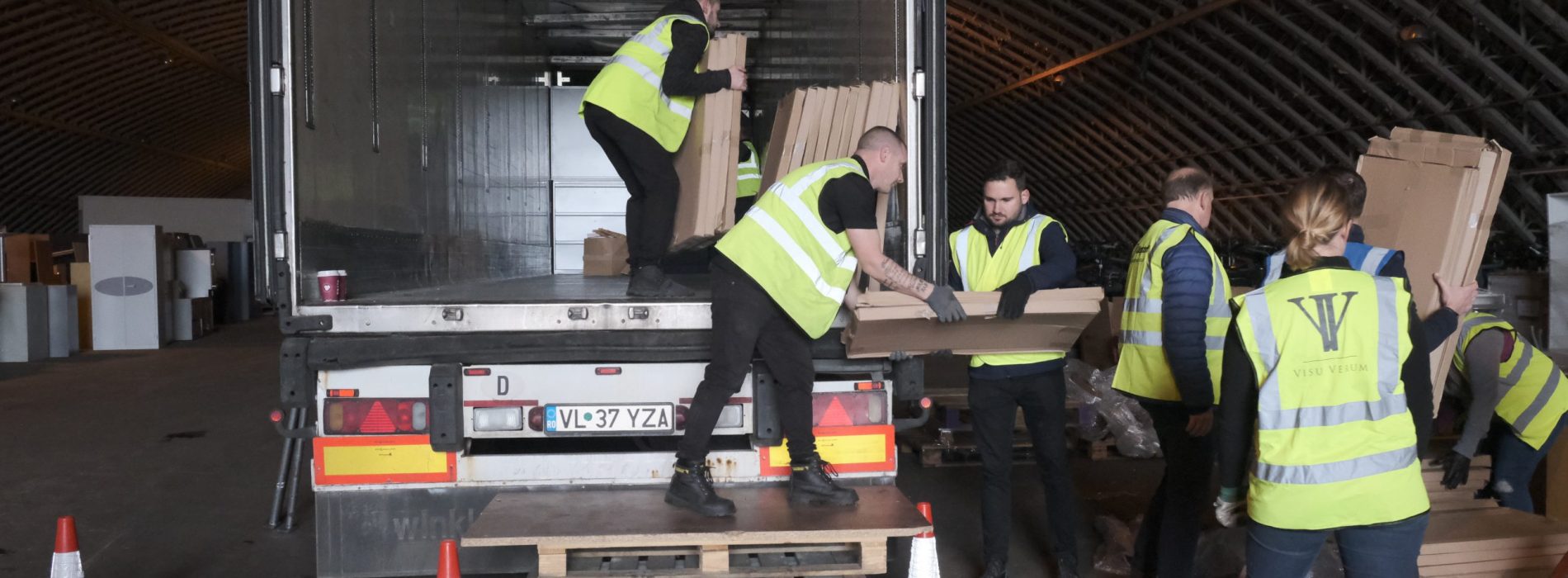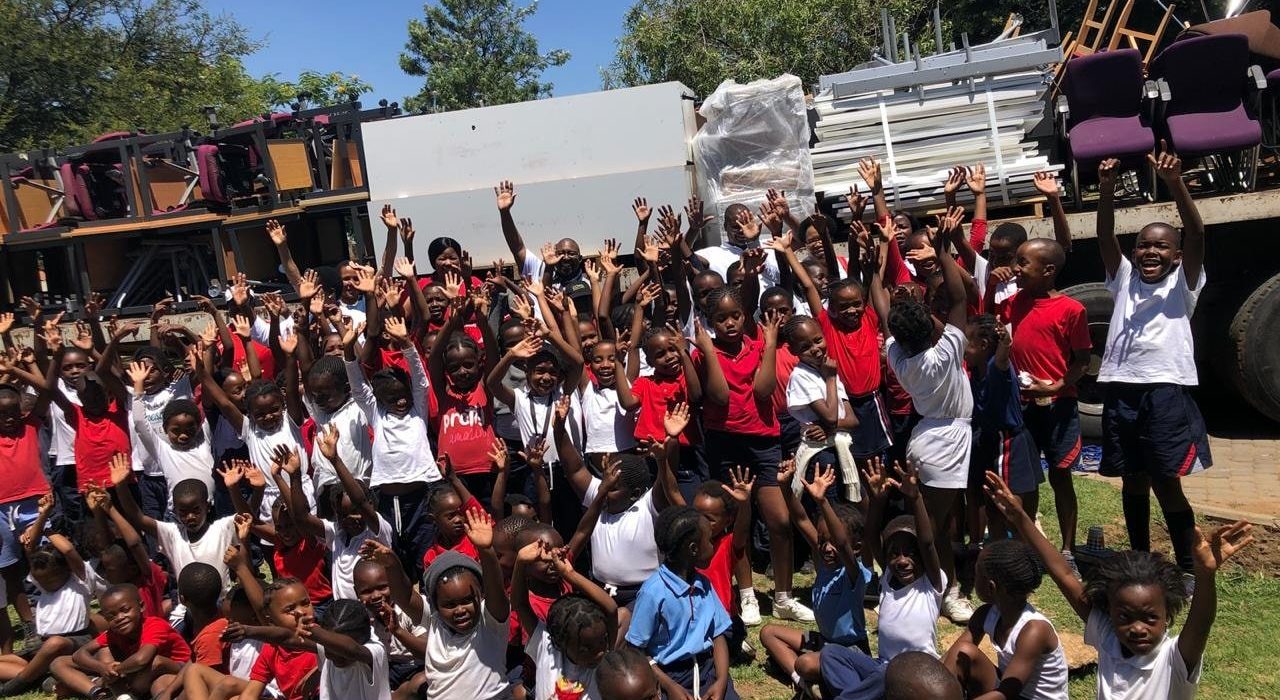In the first of our ‘Challenging the Perception of Waste’ series, Alan Cooper – founder of Waste to Wonder – looks at how businesses’ view redundant furniture which often is sadly deemed as waste…
True sustainability is a complex animal. When McDonald’s switched from plastic to paper straws, there was uproar when the used paper turned out to be too small and soggy to be recycled. ‘Biodegradables’ were an exciting concept until they were revealed to only break down in very specific conditions. And with increased focus on carbon footprints and sustainability reporting, being a sustainably-minded enterprise can feel like a minefield. There are so many considerations business owners have to contend with. Often, we’re sold ‘solutions’ that assure we’re doing the right thing, but turn out to have adverse consequences that make us want to give up all together.
At home, it’s getting easier and easier to live in an eco-friendly manner. But on a corporate scale, it’s still challenging. Providing uniquely tailored facilities for large teams requires lots of “stuff”. And this was before the corporate world became unrecognisable in the space of less than a year.
While offices across the world sit empty, silently waiting for a staff that may or may not return, there is an abundance of built-to-last office furniture that faces an uncertain future. Twitter has committed to a permanent work-from-home culture. In June last year, 65% of UK companies said they were considering downsizing and partial remote work policies. This holds the potential for a lot of ‘waste’.

The waste hierarchy
Something that many people have yet to get their heads around is the ‘waste hierarchy’. The waste hierarchy ranks waste disposal methods from ideal to not so ideal. Not all waste disposal is created equal – some are better than others.
This is little understood, and it’s not the fault of the individual. The vast majority of us want to do good. We’re bombarded with sustainability messaging, and we duly cooperate. We sort our plastics from our papers, we compost our veggie peels, we donate our old clothes. It helps us to feel like we’re doing good – as it should.
What many people don’t realise, however, is that ‘recycle’ comes behind two other key principles in the waste hierarchy: ‘reduce’ and ‘reuse’. Often, the most salient question is not ‘how can we dispose of this responsibly?’ but ‘do we need it in the first place?’. This applies most acutely to many types of packaging.
We need food-waste prevention, protective bubble wrap for furniture, and sanitary plastics for medical use. But many companies are still hugely overusing packaging. Why? Often, to ‘bulk out’ products to heighten the illusion of value for money. It’s also to create more space for branding, colour, and general ‘shelf appeal’ – but that’s a different article all together.
Next comes reuse. Think of the PET bottle your hand soap comes in. Plastic margarine tubs. Glass beer bottles. Don’t they seem to have a lot of life left in them after use, no recycling needed? The thing is, although recycling is beneficial and crucial in many cases, it requires energy. Energy for garbage trucks to transport recyclable waste to recycling plants.
Energy for plastic bottles to be ground down; for glass to be smelted and recast. We also need to consider energy used in production, and the end value of the waste. Going back to the McDonalds straw-gate, paper production is much more water-intensive than plastic production. When it withers away to nothing, it has no nutritious value to our soil. It can’t be re-made into anything like its plastic predecessors. So paper straws sit very low on the waste hierarchy.
Recyclable plastics like PET and PP rank much higher. They bring repeated value over their lifetime. Things like Loop’s aluminium ice-cream tins sit at the top, because they can be used again and again and again.
Despite the hype over ‘compostables’, it is always better to keep things in circulation than to engineer something to break down. Not over-creating in the first place is always the optimal solution, but reuse always trumps recycling. Reduce, then reuse, then recycle.

Reuse in the corporate space
Let’s go back to our empty offices. When countries across the world start deeming their corporate spaces safe to return to, an inevitable slew of clear-outs and shut-downs will – sadly – follow.
Here’s what usually happens: a clearance company is hired to strip an office of its furnishings. This could simply be desks, PCs or cubicles; it could be everything but the kitchen sink; it could be everything including the kitchen sink – carpets, wallpaper, light fixtures and all.
Depending on the scale of the operation, that business will be liable for thousands (or tens of thousands) in disposal costs. Businesses pay twice – for the labour of the disposal, and for the environmental impact. Stripped assets sent to landfill can cost the business as much as £150 a tonne, a number that will only go up with increased focus on waste governance.
Even worse, perfectly good, still-usable furniture is sent right to the bottom of the waste hierarchy – broken down for scraps, or dumped on landfill. With landfill space already reaching capacity, and people and small businesses across the globe desperately requiring usable goods and furniture, it simply doesn’t make any sense.
So why is this wasteful and destructive practice the modus operandi? Often, businesses do not qualify for local recycling schemes, but do not produce enough recyclable waste to do business with private providers (who have minimum collection volumes). Lacking recycling infrastructure for small businesses leaves them caught in an awkward middle space.
The solution
This disconnect is the reason Waste to Wonder exists. By calling on us to handle their office clearances, businesses can:
- Save money
- Reduce their carbon footprint
- Bolster their socially responsible and CSR policies
- Be assured of safe, data law compliant disposal of IT systems
- Best of all, play a role in providing supplies for those who desperately need them.

“Where exactly will our stuff go?”
Essentially, your redundant office furniture will go to whoever needs it. It might go somewhere local, or it might go to one of 900 schools and charities we’ve supplied so far across 19 countries through our flagship School in a Box programme. Our partnership with Domestic & General has seen 50 tonnes of furniture redistributed to good causes around the world. Our partnership with Wagstaff Interiors led us to work with FAST, a Romanian charity who not only provides much needed equipment, but teaches local citizens how to refurbish and install it.
We believe there is just no downside for businesses signing up to our programme. It helps you, it helps others, and it helps the earth. We also complete every project with a legacy report, detailing the positive impact your donation to reuse has made. But it all starts with a shift in perception. We all have a duty to put the brakes on throwaway culture. We can start by looking at ‘old’, redundant, or pre-loved goods in a new and more sympathetic light.
So just remember, the next time you think it is ‘waste’, just remember that waste is a wasted opportunity.

Alan Cooper
Founder & Director of Communications
Alan founded Waste to Wonder as he saw an opportunity to change a out-dated approach of companies relocating, where wastefulness was rife. Having a keen interest in corporate branding and social issues, it seemed a perfect time to link the two and form Waste to Wonder.
Still very active in Waste to Wonder’s business development and new international projects, Alan has more innovative plans to support customers, partners, and recipients worldwide.
Contact him by email on alan.cooper@wastetowonder.com

Recent Comments